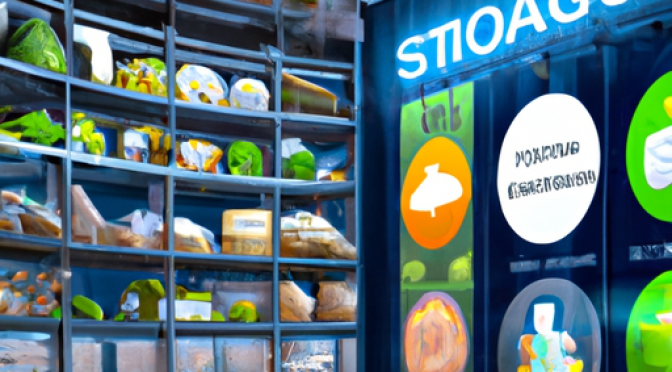Introduction
Food waste is a significant global issue that not only impacts the economy but also contributes to environmental degradation. According to the Food and Agriculture Organization (FAO), approximately one-third of all food produced for human consumption is wasted each year. One area where artificial intelligence (AI) is making a positive impact is in reducing food waste during technologies/" target="_blank">transportation and storage. By leveraging AI technologies, companies are able to optimize logistics, monitor conditions, and make data-driven decisions to minimize spoilage and maximize efficiency.
Optimizing Logistics
AI plays a crucial role in optimizing the transportation of food products from farms to consumers. By analyzing historical data, AI algorithms can predict demand patterns and optimize delivery routes, ensuring that perishable goods reach their destinations in the most efficient manner. This reduces the time spent in transit, minimizing the risk of spoilage and waste. Additionally, AI-powered systems can monitor traffic conditions and adjust routes in real-time, further improving delivery efficiency.
Monitoring Storage Conditions
Proper storage conditions are essential for preserving the quality and freshness of food products. AI-based sensors and monitoring systems can continuously track temperature, humidity, and other environmental factors in storage facilities. By analyzing this data, AI algorithms can detect anomalies and alert operators in case of deviations from optimal conditions. This proactive approach helps prevent spoilage and allows for timely corrective actions to be taken, such as adjusting temperature settings or addressing equipment malfunctions.
Data-Driven Decision Making
AI enables data-driven decision making by providing valuable insights into the entire supply chain. By analyzing vast amounts of data, AI algorithms can identify patterns and trends that humans may overlook. This information can be used to optimize inventory management, reduce overstocking or understocking, and minimize waste. AI can also help predict demand fluctuations, allowing companies to adjust production and distribution accordingly, thereby reducing the likelihood of excess inventory and subsequent waste.
Conclusion
Artificial intelligence is revolutionizing the way food is transported and stored, helping to reduce waste and improve overall efficiency. By optimizing logistics, monitoring storage conditions, and enabling data-driven decision making, AI technologies are making a significant impact in the fight against food waste. As the world continues to grapple with the challenges of feeding a growing population while minimizing environmental impact, AI will undoubtedly play a crucial role in ensuring a more sustainable and efficient food supply chain.

